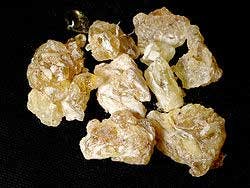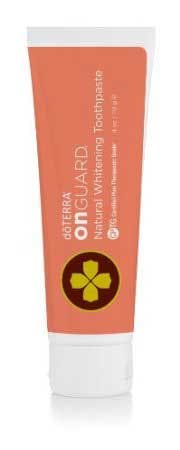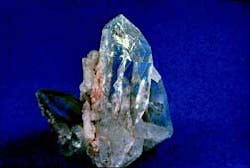Natural toothpaste and mouthwash for sensitivity and plaque control
Can natural dental products provide effective cleaning and de-sensitization with less abrasion? Why would we care to switch? I have been using therapeutic grade essential oil infused oral hygiene products on myself and sharing this information with my patients with exceptional results. Anything that I put in my mouth or on my skin goes into the blood stream so I want the products that I use to be non-toxic and safe. Just as nitroglycerin works under the tongue, chemicals in mouth products are absorbed into the mucosa and travel throughout the body. Bacteria from the teeth can affect the joints and the heart, that is why there are pre-medication guidelines for people with joint replacements and certain heart conditions. The link between cardiovascular disease and dental plaque has been well established. The oral pathogens linked to periodontal disease cause inflammation that can be linked to heart disease, according to periodontist Dr. Sally Cram, DDS, spokesperson for the ADA.(1) What if we could offer our patients a way to get antibacterial and antimicrobial products that only attack the bad microbes and not the healthy tissue? Dr. Jean Valnet, MD, said, “Essential oils are especially valuable as antiseptics because their aggression toward microbial germs is matched by their total harmlessness toward tissue.”(2) Frankincense essential oil was used in a University of Oklahoma study on bladder cancer. It eliminated the bladder cancer cells and left the other cells unharmed!(3,4) Frankincense was more precious than gold in biblical times.(5)
The Thieves oil blend of oral hygiene products that I use contains essential oils of peppermint, wintergreen, eucalyptus, thyme, clove, lemon, cinnamon, and rosemary. At Andhra University, Department of Biochemistry, essential oils of cinnamon, clove, rosemary, eucalyptus and lemon were tested and found to have effective anti-bacterial properties.(6) The Thieves blend of oils contain these five oils. At the Medical University at Lodz, Poland, they studied the microbial action of thyme oil. They found that it strongly inhibited the growth of the bacteria tested.(7)
In the Journal of the American Dental Association, the efficacy of an essential oil containing antiseptic mouth rinse has been demonstrated in numerous double blind studies.(8,9) Many of my patients are concerned about tooth sensitivity and plaque build-up. They complain about canker sores, sloughing tissue, and sore gums from the toothpaste and mouthwash that they are using. What solutions do we have to offer them? Fluoride, desensitizers in toothpaste, and varnishes only offer a band aid approach. Once the product is discontinued, the sensitivity returns. The toothpaste for sensitivity contains a chemical, potassium nitrate, and an abrasive agent, hydrated silica. Hydrated silica is a form of sand. Does it make sense to use a chemical to desensitize and then brush it on with an abrasive? The particle size of toothpaste should be very small so it does not cause excess wear of the dentin and enamel. Most commercial toothpastes use large size abrasive particles. Scanning electron microscope photos of enamel show the damaging effects of popular household toothpastes with large particle sizes as compared to using ultra-fine particle size toothpaste. After viewing these photos, it is clear that the bigger particles damage the fine tooth structure.(10)
Some toothpaste contains strong chemicals that cause the tissue to slough off. I have seen long strings of sloughed tissue on the buccal mucosa of people using certain toothpastes. Tartar control toothpastes are especially damaging to the mucosa. Zinc Citrate containing toothpastes have been shown to reduce calculus naturally by 26%.(11) I attended a seminar given by Integrative Body Psychotherapy (IBP) with Naturopathic Doctor, Dr. Merrily Kuhn, ND, RN, PhD.(12) Dr. Kuhn said that an antibacterial chemical in popular toothpastes is proving to be an endocrine disruptor in the American bullfrog.(13) The FDA reported that is has been shown to alter hormone regulation in animals.(14) This chemical is also used in antibacterial hand soaps and hand sanitizers. The chemical kills the good and bad bacteria. Thieves foaming hand soap and hand purifiers offer a great alternative to the chemical products. When I was in dental hygiene school, the fluoride representative came to speak to us. After hearing his presentation, I was convinced that fluoride was the next best thing to heaven. It was reported to work for decay, sensitivity, plaque, and gingivitis. Prescriptions were given by the dentist as a take home treatment for patients with adult periodontal disease and root decay problems. I was convinced that everyone needed it to protect the teeth. I later learned about a little boy that ingested too much fluoride in a dental office treatment and had to be rushed to the hospital. Because we now have natural tooth products available that don’t carry the warning label “call poison control if ingested” on the tube, does it make sense to use chemical brands? Dr. Joe Mercola wrote in a recent article: You’re Still Told Fluoridation Prevents Tooth Decay, but Science Proves Other Wise. He interviewed Dr. Bill Osmunson, a dentist with a Masters Degree in Public Health, who has been studying the literature on fluoride. Dr. Osmunson said that fluoride did not reduce decay to any significant degree, and it has many health risks such as lowered IQ, impaired thyroid function, weakened bones, and lowered immune function. He says it is more toxic than lead. Fluoride is found in toothpaste, water, nonstick pans, processed food and beverages, and many teas. Certain types of tea leaves are rinsed with fluoride.(15) Dr. Mercola’s interview with Dr. Osmunson can be viewed on his website.(16) Dr. Joan Barice, MD, recommends not using fluoride toothpaste.(17) Dr. Barice recommended using a toothpaste called Thieves Dentarome Ultra, containing the blend of oils that was used during the plague in 15th century France that the grave robbers used to stay healthy during the plague. The toothpaste formula contains edible ingredients. It has no fluoride, sodium laurel sulfate (which has been linked to canker sores), sugar, synthetic chemicals, hydrated silica or colors.(18) It contains calcium and xylitol, shown to inhibit bacteria linked to decay and periodontal disease, and zinc citrate for tartar control. The Thieves mouthwash contains similar essential oils with no alcohol. KidScents toothpaste has no fluoride and is formulated with essential oils and xylitol.(19) Dr. Ulrich Bruhn, a German dentist, has had remarkable results using xylitol on patients with caries and periodontal disease. He said that teeth tightened up and periodontal problems were improved. Xylitol inhibits strep mutans in dental caries.(20) As a personal testimonial, I have been using Thieves Dentarome Ultra since 2008, I have had no sensitivity, decay, or bleeding since using this toothpaste. One of my patients, a 65-year-old male with diabetes, with severe periodontal pockets, bleeding, inflammation and exudate, began using Dentarome Ultra. At his next visit, he exhibited pink gingiva, no bleeding, and no exudate. I was very impressed. My friend in Virginia, a smoker, said her dental hygienist was so pleased with the change in her dental health that she wanted to know what she was doing differently. Her cleaning time was also reduced by half. The Thieves lozenges have worked for my sore throats. They contain stevia, no sugar, and the blend of lemon rind, clove, cinnamon, eucalyptus, rosemary and peppermint essential oils. Thieves mouthwash is equally effective and can be used as a gargle for sore throats. A drop of Thieves oil on the bottom of the feet is great at the first sign of a cold.(21) I have used a drop of Thieves essential oil on a Q-Tip and placed it on a canker sore. The sore dried up in a couple days as opposed to weeks. While treatment with debacterol (sulfuric acid/phenolics solution) is often recommended to patients by the dentist for the canker sores, I prefer the Thieves oil.(22) It burns for a minute but reduces the healing time.(23) I hope I have shed some light on natural dental products that can provide effective cleaning and de-sensitization with less abrasion than conventional products.Author's note: This article is for educational purposes and not medical advice. Only use superior therapeutic grade essential oils and please educate yourself about oils before using them as they are very concentrated. For more information, please visit www.tawnyasessentialoils.weebly.com.Editorial Director’s Note: The information contained in this article is the opinion of the author and not necessarily that of the editorial director or PennWell.®References 1. Griffin RM. Periodontal Disease and Heart Health. WebMD. 19 Jan. 2013. http://www.webmd.com/heart-disease/features/periodontal-disease-heart-health. 2. Valnet, Jean. Aromathérapie Traitement Des Maladies Par Les Essences Des Plantes. Paris: Maloine, 1972. Print. http://www.therealessentials.com/dentalcare.html and http://pptu.lefora.com/2011/08/22/essential-oils-by-dr-jean-valnet. 3. Frank MB, Yang Q, Osban J, et al.Frankincense Oil Derived from Boswellia Carteri Induces Tumor Cell Specific Cytotoxicity. BMC Complementary and Alternative Medicine 2009, 9:6, 19 Jan. 2013. http://www.biomedcentral.com/1472-6882/9/6/abstract. 4. Baker S. Frankincense Oil Kills Bladder Cancer Cells. Natural News. http://www.naturalnews.com/025892_cancer_frankincense_oil.html. 5. Manery, B. Frankincense, myrrh, and more: oils that heal as referenced in the Bible. (Alternative medicine). Countryside & Small Stock Journal; 11/1/2004. http://www.healthscents4u.com/Pages/Frankincensemyrrh.aspx. 6. Rao KP, Varaprasad B, Aryamithra D, Devi PS, and Rao TR. In Vitro Antibacterial Activities Of Plant Essential Oils Against Oral Bacteria Ind. J. Multi. Res. 2008. Vol. 4 (4) : 507 – 516. http://www.scribd.com/doc/17438122/In-Vitro-Antibacterial-Activities-of-Plant-Essential-Oils-Against-Oral-Bacteria. 7. Sienkiewicz M, Łysakowska M, Denys P, Kowalczyk E. The antimicrobial activity of thyme essential oil against multidrug resistant clinical bacterial strains. Microb Drug Resist. 2012 Apr;18(2):137-48. doi: 10.1089/mdr.2011.0080. Epub 2011 Nov 21. http://www.ncbi.nlm.nih.gov/pubmed/22103288. 8. Charles CH, Sharma NC, Galustians HJ, et al. Comparative efficacy of an antiseptic mouthrinse and an antiplaque/antigingivitis dentifrice. A six-month clinical trial. J Am Dent Assoc. 2001 May;132(5):670-5. 9. Riep BG, Bernimoulin JP, Barnett ML. Comparative antiplaque effectiveness of an essential oil and an amine fluoride/stannous fluoride mouthrinse. J Clin Periodontol. 1999;26:164–168. doi: 10.1034/j.1600-051X.1999.260306.x.9. Essential Desk Reference 4thEdition pages 245-246. 10. Would You Use Sandpaper to Clean Your Teeth? A Photographic Comparison of the Abrasiveness of Several Leading Toothpastes. http://www.secretofthieves.com/toothsandpaper.cfm. 11. Santos SL, Conforti N, Mankodi S, Kohut BE, Yu D, Wu MM, and Parikh R. Anticalculus effect of two zinc citrate/essential oil- containing dentifrices. Am J Dent 2000 Sep, 13 (Spec No) 11 C- 13 C). http://www.ncbi.nlm.nih.gov/pubmed/11763907. 12. http://www.drmerrily.org. 13. http://www.health-report.co.uk/triclosan.html. 14. http://www.fda.gov/ForConsumers/ConsumerUpdates/ucm205999.htm. 15. Lunga SC, Cheng H, Fua CB. Potential exposure and risk of fluoride intakes from tea drinks produced in Taiwan. Journal of Exposure Science and Environmental Epidemiology (2008) 18, 158–166; doi:10.1038/sj.jes.7500574; published online 4 April 2007. 16. Mercola, Dr Joe . “Your Still Told Fluoridation Prevents Tooth Decay, but Science Proves Other Wise “ 2013, Jan 20. http://articles.mercola.com/sites/articles/archive/2013/01/20/fluoride-denialism.aspx?e_cid=20130120_SNL_Art_1&utm_source=snl&utm_medium=email&utm_campaign=20130120 and http://www.mercola.com. 17. http://drjoanbarice.com. 18. Canker Sore Causes. Mayo Clinic staff. http://www.mayoclinic.com/health/canker-sore/DS00354/DSECTION=causes. 19. http://www.aroma-essence.com/catalog/kidscents.html. 20. Bruhn, Dr Ulrich, “Rinsing and Brushing with Xylitol Sugar” http://www.healingteethnaturally.com/xylitol-dental-care-frequently-asked-questions-faq-4.html. 21. Kwitt L. How to get rid of a cold overnight. Young Living Success. February 27, 2011. http://www.younglivingsuccess.com/2011/02/index.html. 22. http://www.debacterol.com. 23. http://www.family-essential-oils.com/canker-sore-remedy.html.
Tawnya (on left) and Tristan
Tawnya Bobst, RDH, BS, lives in Melbourne Florida, and is currently completing a course to become a certified aroma therapist. Tawnya works as a dental hygienist and raises toy poodles for show. Please visit http://tawnyasessentialoils.weebly.com for more information on essential oils.
To read more about natural products and essential oils, click here and here.





